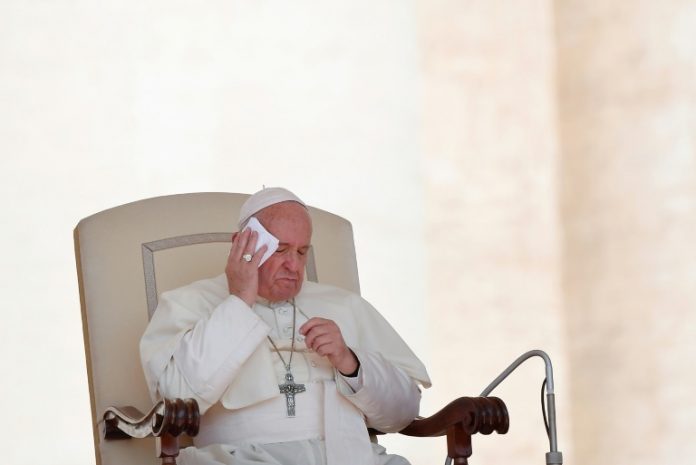On the eve of a visit by Pope Francis to Japan, activists called Friday on the government to declare a moratorium on executions as part of an Olympic truce to mark Tokyo 2020.
The pope is expected to shine a spotlight on the death penalty in Japan, where it enjoys considerable popular support despite criticism from rights groups.
He may meet Iwao Hakamada, who spent nearly 50 years on death row after being accused of robbing and murdering his boss along with his boss’s wife and two teenage children, before burning down their house.
Hakamada, who is waiting for a Supreme Court decision over a possible retrial, was freed from prison in 2014 decades after doubts emerged about his guilt. He has been invited to attend a Mass held by the pontiff, but it is unclear whether the two men will meet.
Mario Marazziti, co-founder of the World Coalition Against the Death Penalty, told Japanese MPs and reporters that he was calling for “an Olympic truce, a 2020 moratorium in the year of the Olympic Games.”
“The death penalty adds another death to other deaths. It’s not justice,” stressed Marazziti.

Osamu Kamo, from the Japan Federation of Bar Associations, which also campaigns against executions, said they would be closely watching what message Francis brought on the death penalty.
“The death penalty is not just a matter for the Japanese. If foreigners commit murders in Japan, they could also be sentenced to death. It’s an international affair,” he said.
Capital punishment has broad public support in Japan with few calls to abolish it.
Since World War II, successive governments, including the current administration of Prime Minister Shinzo Abe, have cited broad public support as a reason to maintain capital punishment.
A 2014 government survey of around 1,800 people showed 80 percent thought capital punishment was “unavoidable”, with only one in 10 in favour of abolishing it.
But Marazziti dismissed the surveys, saying: “Polls are not democracy. You cannot govern with polls.”
“If you asked people if they are pro or anti taxes, 80 percent will say they are against. So are you going to do away with taxes? If the answer is yes, it’s the end of the country and that is not democracy,” noted Marazziti.
















